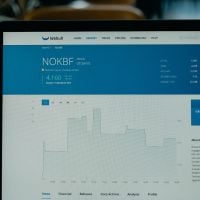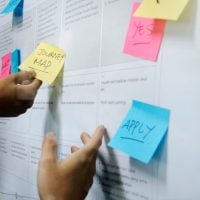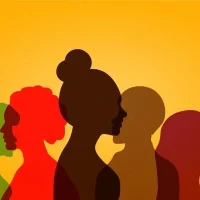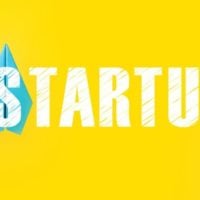Deadline: 30 January 2020
European Commission is inviting applications for its grant programme entitled “Social orientation of newly arrived third-country nationals through involvement of local communities, including mentoring and volunteering activities.”
Objectives
- Develop activities involving local communities, including mentoring and/or volunteering, to facilitate the social orientation and active participation of migrants;
- Support the social orientation of both migrant women and men, including through provision of information about all the aspects of daily life;
- Strengthen the sense of belonging to the new society and foster an active role in the community at local, regional, national and/or EU level;
- Promote meaningful interactions between the local population and newly arrived migrants;
- Facilitate the transfer of experience, knowledge and practices between the partners of the project to develop more effective actions;
- Facilitate the dissemination of experience, knowledge and practices beyond the partners of the project to develop more effective actions, including by evaluating the impact of the actions developed.
Actions
- Activities to support the social orientation of newly arrived, through the involvement of local communities including mentoring and/or volunteering activities, designed on an equal basis, for the benefit of all involved. Migrants, especially when already settled in the local community, can also be involved in the activities.
- Activities to strengthen the sense of belonging to the new society and foster an active role in the community at local, regional, national and/or EU level;
- Activities to promote meaningful interactions between migrants and the receiving society;
- Trainings, workshops, mutual learning activities aiming at transferring and sharing knowledge on supporting the social orientation of both women and men newly arrived, strengthening their sense of belonging and promoting exchanges and interactions between the receiving society and migrants facilitating the integration of newcomers as well as developing and sharing the knowledge on how to pursue these objectives in an effective manner, e.g. by evaluating the impact of the actions developed.
- The projects and activities need to cover a significant range of relevant areas of daily life for the participants, such as:
- everyday problem solving;
- access to basic services, including health services and housing;
- education and training for children (early care and childhood education, schools, school or pupils’ clubs or events, non-formal education institutions such as youth clubs, sports clubs, or cultural groups for children) and adults (classes, cultural groups);
- participation to local community, to social, cultural or sports activities (e.g. taking part, coaching or going to watch), including environmental activities (e.g. national organisations, local conservation groups, preservation societies, local recycling practices).
- building a social network and making friends.
- The projects and activities need to take into account the specific situation of groups of special concern, such as children, parents with children, women, the elderly, illiterate or semi-literate persons, refugees, people arriving in the context of family migration, or victims of violence who need specific information tailored to their needs.
Outcomes
- Improve the social orientation of both women and men newly arrived involved in the projects and/or show and evaluate how the support provided through the project contributed to this objective;
- Strengthen the sense of belonging to the new society and support their active role in the community at local, regional, national and/or EU level and/or show and evaluate how the national/transnational actions contributed in this regard;
- Promote exchanges and interactions between the receiving society and newly arrived migrants facilitating the integration of newcomers;
- Improve transnational cooperation to facilitate the transfer of experience, knowledge and practices (good and bad) related to the social orientation of third-country nationals within the partners of the project, and achieve more effective practices and initiatives;
- Facilitate the dissemination of experience, knowledge and practices beyond the partners of the project;
- Improve knowledge on how to support the social orientation of both women and men newly arrived;
- Improve knowledge on whether and how the facilitation of interactions between the native population and migrants is associated with more positive attitudes towards migrants and improved social integration
Budget Information
The grant amount of this program is EUR 4 000 000.
Eligibility Criteria
All the applicants and co-applicants must fulfil the following eligibility requirements for applications to be eligible.
- Legal Status
- The following entities can apply as lead applicants:
- public bodies
- non-profit-making private entities
- international organisations
- The following entities can apply as co-applicants:
- public bodies
- non-profit-making private entities
- profit making entities
- international organisations
- The following are not eligible, neither as applicants nor as co-applicants:
- Union Agencies
- natural persons
- Affiliated entities, i.e. legal entities having a legal or capital link with applicants, should take part in the action as individual co-applicants in order to declare eligible costs unless there are affiliated to a public body.
- The following entities can apply as lead applicants:
- Country of establishment: With the exception of international organisations, applicants and co-applicants must be established in the following countries to be eligible:
- the Member States of the European Union with the exception of Denmark
- International organisations can be established outside the above-mentioned countries.
- For British applicants: Please be aware that eligibility criteria must be complied with for the entire duration of the grant. If the United Kingdom withdraws from the EU during the grant period without concluding an agreement with the EU ensuring in particular that British applicants continue to be eligible, you will cease to receive EU funding (while continuing, where possible, to participate) or be required to leave the project.
How to Apply
Applicants can apply via given website.
For further information, please visit http://bit.ly/2yqosCq









































